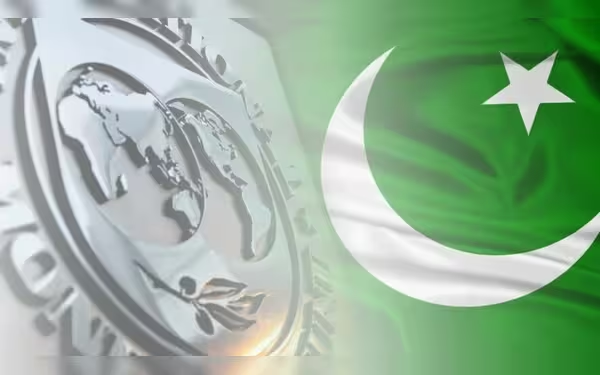Thursday, July 4, 2024 05:51 PM
IMF Urges Pakistan to Increase Petrol Prices
- Consumers in Pakistan may face petrol price hike soon
- IMF recommends 18% GST on petrol to boost tax revenues
- Government aligns domestic prices with global market trends
 Image Credits: GNN
Image Credits: GNNConsumers in Pakistan may soon face a petrol price increase as the IMF recommends tax adjustments to boost revenues. The government aligns domestic fuel prices with global market trends for economic stability.
Amid a surge in prices of High-Speed Diesel (HSD) in the global market, consumers in Pakistan may soon face an increase in petrol prices over the next two weeks. Sources indicate that the exact hike in petrol rates will be disclosed once the Oil and Gas Regulatory Authority (OGRA) finalizes its assessment. The proposed adjustments will be submitted to Prime Minister Shehbaz Sharif for approval, with the revised prices set to be announced today.
The International Monetary Fund (IMF) has urged Pakistan to impose an 18% General Sales Tax (GST) on petrol, along with eliminating sales tax exemptions on all products, including petroleum. Additionally, the IMF has recommended the imposition of a Rs 60 levy on petroleum products to boost tax revenues. The recent government decision on March 31 saw a Rs 9.66 per litre increase in petrol prices, while the cost of HSD decreased by Rs 3.32 per litre. Petrol prices rose from Rs 279.75 to Rs 289.41 per litre, while HSD rates dropped to Rs 282.24 from Rs 278.92 per litre.
The Finance Ministry clarified that these adjustments were prompted by the corresponding fluctuations in global petrol and HSD prices. This move aligns with the government's strategy of reflecting international market price changes in the domestic market.
As Pakistan braces for a potential hike in petrol prices, consumers are advised to stay informed about the forthcoming adjustments. The government's decision to align domestic prices with international market trends underscores the need for economic stability and revenue generation in the country's energy sector.













